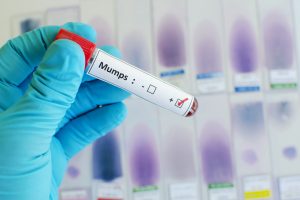Terms of the agreement must be approved by Diamond State Port Corporation Board and the Delaware General Assembly
WILMINGTON, Del. – Governor John Carney and Secretary of State Jeffrey Bullock on Thursday announced that the State of Delaware has reached a preliminary agreement with the Gulftainer Group to lease the Port of Wilmington from the State, construct a new container shipping facility on the Delaware River, and significantly expand jobs at the Port over the next decade.
The Gulftainer Group is the largest independent, privately-owned port operator in the world. The company currently operates 15 ports and logistics facilities across four continents, including North America. Gulftainer has operated the Port of Canaveral, Fla. for nearly four years, establishing the Canaveral Cargo Terminal as a significant new port gateway. The introduction of new container and containerized cargo services at Canaveral contributed to an increase in cargo volume of more than 150% in 2017.
“The Port of Wilmington has long been a center of good-paying jobs in Delaware that stabilize families and the neighborhoods where they live,” said Governor Carney. “Creating more of those jobs is central to the economic success of our state, and the preliminary agreement we have on the table holds the promise of significant new investment at the Port that will expand job opportunities for years to come.”
Under terms of the preliminary agreement, Gulftainer’s subsidiary GT USA would make annual royalty payments to the State of Delaware reaching an estimated $13 million over the next decade. The company also would agree to invest more than $580 million in the port over the next nine years, including approximately $410 million for a new container facility at DuPont’s former Edgemoor site, which was acquired by the Diamond State Port Corporation in 2016.
GT USA would also establish a training facility at the Edgemoor site for jobs in the ports and logistics industries, with a goal of training 1,000 aspiring workers each year for high-quality jobs in Wilmington and beyond.
“Delaware has a unique opportunity to partner with an operator that can transition our port into a significant economic driver for the state,” said Secretary of State Bullock, Chairman of the Diamond State Port Corporation. “A proposal like this does not come along very often, and Delaware should take advantage of it.”
The Board of Directors of the Diamond State Port Corporation (DSPC), the public entity that owns and operates the Port of Wilmington, must approve terms of the agreement. Members of the Delaware General Assembly also must approve the agreement. The Board is scheduled to consider the agreement on April 6. If the Board consents to the terms, the agreement would be presented to the Joint Committee on Capital Improvement of the General Assembly, as required by Delaware law.
“We see enormous opportunity at the Port of Wilmington and are gratified by the support for GT’s plans from Delaware unions, business, and broader community,” said Gulftainer CEO Peter Richards. “We want to restore the Port as an important national cargo gateway, doubling cargoes, doubling revenue to the State, investing hundreds of millions of dollars and adding thousands of workers over the next decade. We see only upside in the US and the Port of Wilmington is poised to become one of the biggest success stories in the US ports and logistics sector.”
Under terms of the agreement:
- GT USA would lease the Port of Wilmington for a term of 50 years.
- The company would make royalty payments to the State of Delaware according to the volume of cargo that passes through the port.
- Annual royalty payments would be expected to grow from approximately $6 million in 2018 to $13 million by 2027.
- GT USA would agree to invest more than $580 million in the port through 2027, including approximately $410 million for a new container facility at the Edgemoor site.
- Construction at the Edgemoor site would begin by 2022.
- GT USA would guarantee that the number of jobs held at the port by members of the International Longshoremen’s Association would not fall below current levels.
“I have been pleased with the tremendous amount of effort and work that has gone into finding a port operator that will be the best fit for Delaware,” said Representative Quinn Johnson, co-chair of the Joint Committee on Capital Improvement and a member of the DSPC Board of Directors. “The port is a tremendous asset to the entire state and has a tremendous amount of economic potential. It is clear that the time has come for a solid public/private partnership that will make the necessary investments to grow port activity and increase the number of jobs the port supports throughout Delaware.”
“All of us are focused on seeing the state’s investment in Edgemoor pay off,” said Senator David Sokola, co-chair of the Joint Committee on Capital Improvement and a member of the DSPC Board of Directors. “The former DuPont site is the right location – with pre-existing rail and highway links in one of the nation’s most strategic areas – and Gulftainer may turn out to be just the right investor to transform it into a global shipping destination and a major asset for Delaware’s economy. I hope to review a finalized proposal in our board meeting next week and, if it is the right deal for Delaware, I look forward to supporting the plan in the Senate.”
“This could be a big win for Delaware and a significant boost to our economy. I’m very supportive and we should do whatever we can to try to get this deal done,” said Senator Colin Bonini, the senior Republican member of the Joint Committee on Capital Improvement. “The Governor and his team deserve a lot of credit for persevering on this and I really hope we can get this done soon.”
###
